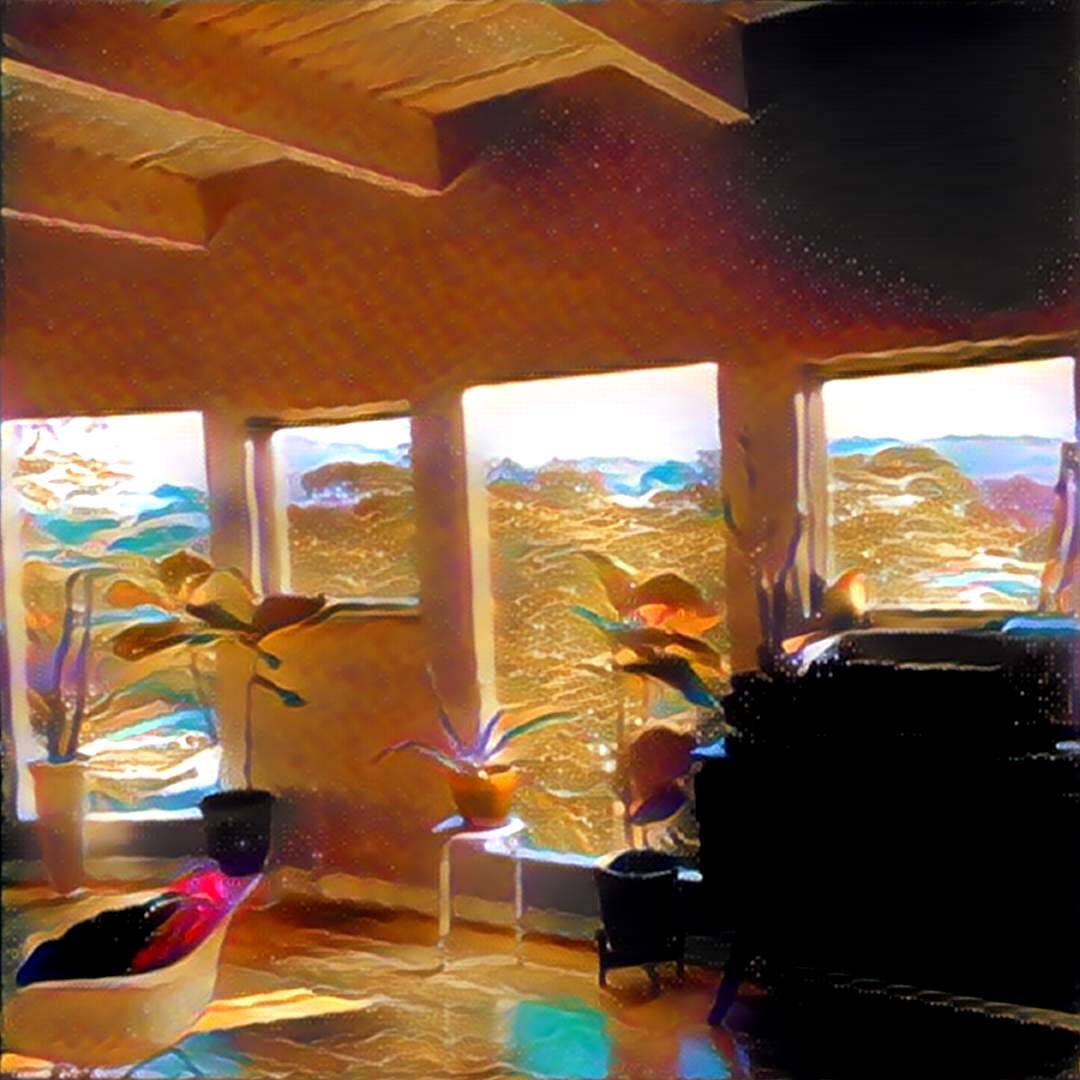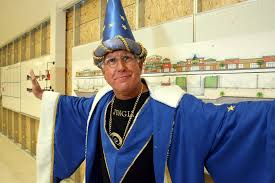I’ve been absent from this space for awhile, mostly because I’m acclimating to a new routine and living situation. Sitting high on a hill, overlooking the never-ending stream of automobiles sluicing down the 5 freeway, California sun lighting up floor-to-ceiling windows is a different experience than being nestled down in a tree-arbored apartment in southwest Ohio. The dominant color there is green; here I am steeped in golden brown and dusty blue.

My daughter Rhiannon is coming up on 35 weeks of pregnancy with twin boys and I have been summoned in support, the first time in more than a decade that I can recall her making an unequivocal request for my help. Obviously, I am awash in emotion. This is one of those life passages so fraught with implication and meaning that one is placed in an altered state merely by their occurrence. Watching my only child soften into the contours of fecundity, I hover in suspended awareness. Time is passing; my role in my own life no longer assumes center stage. This is the future coalescing and supplanting, as it always has and will forever do.
***
Los Angeles is providing a fertile stage for this awareness; though I have lived in its proximity most of my life, I have not spent a great deal of time within its neighborhoods. My maternal grandmother lived just outside of Glendale for decades and I would spend one week a year throughout my youth with her, usually in the spring. As my daughter grew, I would drive up once a month or so from Orange County and Grandma and I would take her to Griffith Park or Descanso Gardens or the Galleria, the same places she used to take me. That was, in essence, what LA represented for me: discrete destinations, curated experiences, little containers of childhood. Now – and especially in contrast to the semi-rural context of Ohio and Moldova – LA has deepened into a complex tapestry, richly colorful, fantastically disordered, and pulsating with life. I finally begin to understand and appreciate the siren call of LA. Energy never dissipates here. There is no quiet. At 3am, the number of cars rushing through those asphalt arteries down below far exceeds those I would pass at 8am on the 275 into Cincinnati. They hypnotize me and calm me, each one a story, an intention, a full and varied life that shoots by at 75 miles per hour, anonymous and discrete,simultaneously acting out my inherent restlessness and holding it at bay.
When my daughter first moved here five years ago I bought her a book, Secret Stairs: A Walking Guide to the Historic Staircases of Los Angeles, that I thought might provide a different perspective on the city where no one, purportedly, walks. Little did I imagine at the time that it would become a trusty companion to my morning perambulations through the many hillside neighborhoods of eastern Los Angeles. Coming from the land of suburban housing tracts, planned communities, and gridded streets, I am delighted by the clapboard bungalows, Craftsman cottages, Neutra- and Wright-designed villas, bougainvillea-draped manors, and wooded cabins that hang off the slopes of precarious canyons fed by one-lane, buckled cement roadways that twist around and back on themselves in whimsical loops.
Climbing two or sometimes three (if I’m feeling really ambitious) staircases every morning is giving me a much more arduous but enjoyable workout than the elliptical machine at the Ohio gym. During a typical walk, I might pass by the house where Amy Semple lived, Anais Nin died, Thelma Todd was murdered, or Faulkner wrote his screenplays; circumnavigate an emptied drinking-water reservoir being reconstructed into a wetland habitat; conquer the staircases that defeated Laurel and Hardy in The Music Box or the Three Stooges in An Ache in Every Stake; or stroll through the wooded canyon where once the Pacific Electric Red Car trolley line ran. The staircases themselves are vestigial monuments to long-dead contractors – C.W. Shafer or M.W. McCombs – and city inspectors – W.E. Moyle or Rumble – who stamped their names into concrete almost a century ago. They are historical reminders of a time when LA was not a city of cars and freeways, but was, instead, well-served by trolleys, buses, streetcars and light-rail systems. As Secret Stairs tells it:
The staircases were clustered around steep hillside communities near these transit lines…[and were] so much a part of the landscape that developers in some areas built houses that had no other access to the outside world. These “walk-streets”… were set on hillsides without streets or garages. Everything going in or out had to employ the public staircase running, usually, across the front of the house.
Think of that! Houses without vehicle entry a scant handful of miles from downtown LA! And, by virtue of the strenuous effort needed to access them, I imagine, many of them appear not to have been altered or remodeled since they were built in the 20’s and 30’s – a unique and refreshing phenomenon in a city that reinvents itself almost every decade. There is one particular walk-street staircase of 182 steps in Rhiannon’s neighborhood affording the intrepid climber stunning vistas of Forest Lawn Memorial Park and the Silver Lake reservoir that I cannot imagine hauling a refrigerator up. The houses along this pedestrian alley are tiny, brightly painted, and overgrown with banana, palm, avocado, cedar, and ancient oak trees. I imagine their contents to be relatively spare and carefully curated, or else collected over decades and never changed. One would need to work hard to accumulate stuff in one of these homes: how bad do you really want that king-sized headboard, mahogany wardrobe, or JennAir range? Enough to haul it up 182 narrow, eroding concrete steps (or pay a ton of money to have someone else do it?)
The density and diversity of these neighborhoods enchants me, welcoming places where economic class and attendant privilege are not so cleanly demarcated. Perhaps one of these reasons why Angelenos remain so overwhelmingly liberal in their politics and lifestyles is that they are not able to isolate themselves in a gated bubble. So much of this city is irretrievably integrated, vagabonds setting up tarp tents in the gulches outside the Whole Foods Market, Guatemalan septuagenarians residing in crumbling adobes next to teenaged celebrities inhabiting world-renowned architectural wonders, bilingual preschools sporting late model Land Rovers parked next to rattletrap Datsuns (remember those) in their dirt lots. Los Angeles is a simmering stew of ethnic and cultural variety that fills me with appreciation, having been steeped in communities both foreign (Eastern Europe) and domestic (Orange County) that offered a limited range of predominantly pale hues. I see what the west coast – and LA, in particular – holds for people who have for years dreamed of a broader, more inclusive landscape. This place sprawls with its seemingly limitless ability to contain it all: every dream, aspiration, inspiration and realization, each nuanced individual goal and massive global concept. Energy never dissipates here. It expands, amplifies, and peoples itself.
***
When Rhiannon was around seven years old, Mike and I moved from Huntington Beach to Irvine, intent on escaping downtown sidewalks (at that time) littered with used condoms and hypodermics, where adolescent skateboarders would sooner roll over your toes than cede an inch of their trajectory and the summer tourists made guest parking a pipe dream. We retreated to the safety, cleanliness, and order of a first-class school system, landscaped medians, acres of parking lots and no less than five Targets within driving distance. We lost much in the process. I am glad to know that Rhiannon and her partner are concerned less with cocooning their two sons in cotton and convenience and more with exposing them to the wild and eclectic elements that germinate in the City of Angels. I’ve discovered that my daily changes in elevation offer me a visible contrast of perspectives, how one thing can shift and alter according to where one is standing, the landscape itself embodying the interplay and intersection of life at all levels. And all these stairs are making me strong again, increasing my endurance for the long haul, something I’m going to need as the next generation takes the stage.














